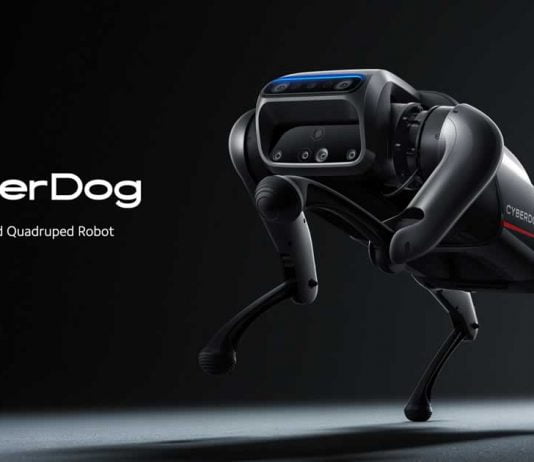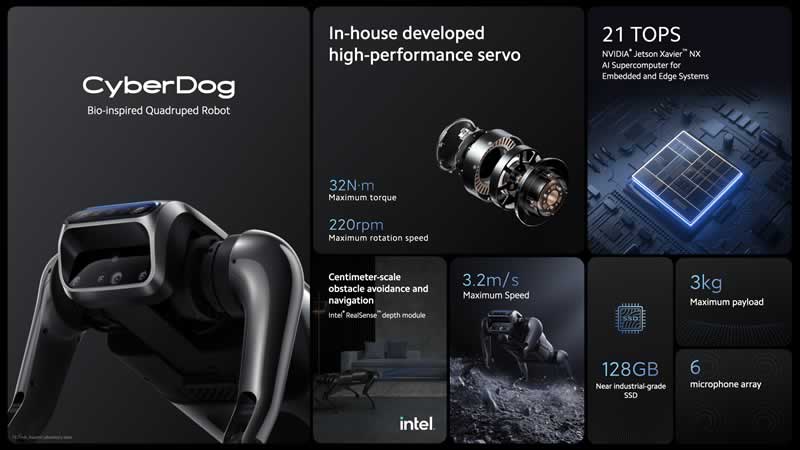At the launch of the Mix 4 and the Mi Pad 5, Xiaomi surprised everyone with its own open-source robot dog — CyberDog.
CyberDog, which is highly reminiscent of Spot from Boston Dynamics, is Xiaomi’s most advanced robot, with up to 6 built-in microphones and the best of Intel and Nvidia inside.
During the official announcement, Xiaomi addressed CyberDog as a “bio-inspired quadruped robot” and an open-source companion dog — this means that developers from all over the world can freely work and experiment on it.
According to Xiaomi, “Robotics enthusiasts interested in CyberDog can compete or co-create with other like-minded Xiaomi Fans, together propelling the development and potential of quadruped robots.”
The Cyberdog moves at a speed of almost 12 km/h and weighs 3 kg. It is equipped with an Nvidia Jetson Xavier NX. This uses six self-developed cores with ARM’s 64-bit technology ARMv8.2. The CPU is made up of two faster and four slightly slower cores. There are also 384 graphics cores with Volta technology, including 48 tensor cores and two special deep learning accelerators. The NX can access 8 GB of LPDDR4 RAM and 16 GB of eMMC.
According to Xiaomi’s announcement, the CyberDog is a true beast that features a navigation and obstacle detection system that is accurate to the centimeter. This is made possible by the implementation of the Intel RealSense D450 depth module, accompanied by interactive AI cameras and ultra-wide-angle “fisheye” cameras.
The CyberDog has high-performance servo motors, developed by Xiaomi to make it as versatile as possible. According to the Chinese company, the maximum torque is 32-newton ·meters, while the rotational speed reaches 220 revolutions per minute. This allows CyberDog to be fast, agile and have a wide range of movements.
As we mentioned already, Xiaomi’s CyberDog comes with a navigation system that allows you to analyze your environment and interact with great fluidity. But this is not all. The robot dog also comes equipped with an arsenal of sensors that provide “instant feedback” to guide its movements. In addition to cameras, it includes touch and ultrasonic sensors and GPS modules, among others.
It has facial recognition to follow its owner and obey him so that it can follow him wherever he goes, even if there are obstacles in the way. It is controlled by a remote or from its own application. In addition, it supports voice commands.
It also has USB-C and HDMI ports and a 128 GB SSD so that developers can take advantage of them and experiment with new software and hardware. Furthermore, the company has committed to establishing a robotics laboratory for engineers interested in advancing innovations.
Xiaomi insists that it has built the CyberDog in order for it to be adopted by the open-source community. In fact, the robot itself has been created using open-source algorithms.
Xiaomi has launched 1000 units of the CyberDog at a price of 9999 yuan (just over $1500), aimed at “fans of the brand, engineers and robotics enthusiasts.

